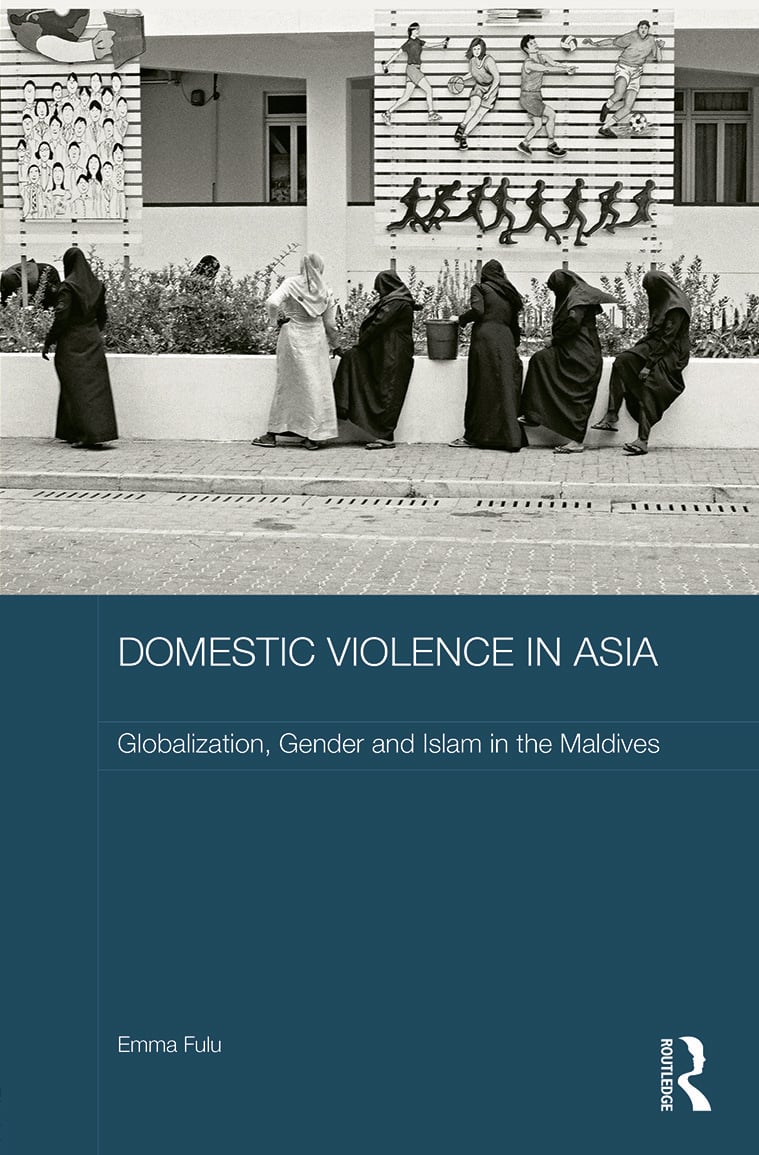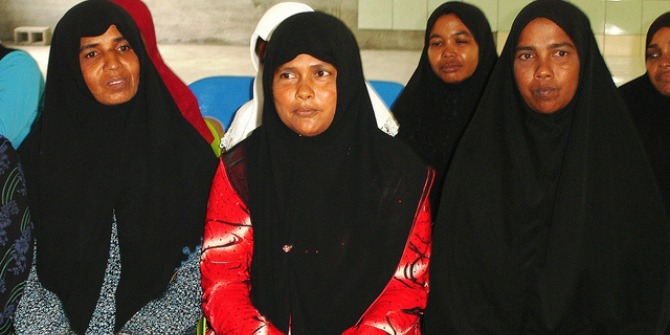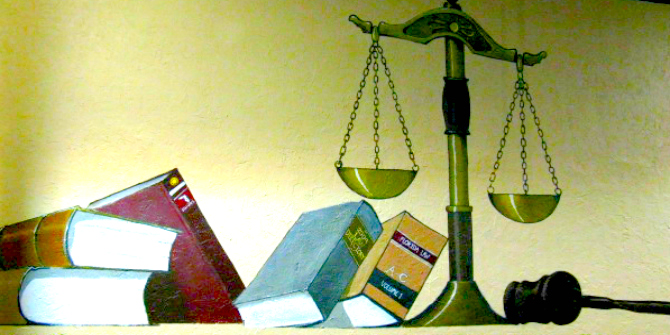This book looks to explore changing patterns of domestic violence in Asia. Based on extensive original research in the Maldives, it argues that forces of globalisation, consumerism, Islamism and democratisation are changing the nature of domestic relations, with shifting ideas surrounding gender and Islam being particularly significant. This is a provocative read for students of development, religion, and gender studies, writes Nehaal Bajwa.
 Domestic Violence in Asia: Globalization, Gender and Islam in the Maldives. Emma Fulu. Routledge. 2014.
Domestic Violence in Asia: Globalization, Gender and Islam in the Maldives. Emma Fulu. Routledge. 2014.
Between 2004 and 2008, Emma Fulu worked at the Ministry of Gender and Family in the Maldives, where she conducted research and interviews for her book, Domestic Violence in Asia. Whilst there, Fulu coordinated the first Maldives Survey on Violence Against Women, which provided the quantitative context for her investigation and its impetus: although Maldivians felt that violence against women was rare in their society, the nationally representative survey revealed that a fifth of Maldivian women aged 15 to 49 had experienced physical or sexual violence (or both) from a partner. While Maldivians were shocked that such a large proportion of women had experienced partner violence, Fulu knew that compared to many other parts of the world, including the United Kingdom (26%), the USA (30%), Australia (over a third) and much of the rest of Asia, the figure from the Maldives was remarkably low.
Fulu takes this disconnect between Maldivians’ perception of their society as non-violent and their shock at what they saw as high rates of domestic violence as her starting point. Incorporating factors which affect people at individual, family, community, society and global levels, she traces recent changes to Maldivian society and how they are undermining processes which traditionally kept domestic violence low: flexible norms surrounding marriage and divorce; relative gender equality; and a low-crime society where “violence has not been considered an acceptable means of dealing with problems” (p.17). The effects of global flows of people and ideas on local ideologies of love, marriage and divorce are eroding these protective factors, Fulu argues. The impacts of globalization on the roles of women at work and in the public sphere, and how globalization has contributed to income inequality, overcrowding, and social tensions in what is locally perceived to be a social crisis are also identified as contributing to this change.
The first two chapters detail experiences of women in the Maldives who have suffered domestic violence, and outline the “risk” and “protective” factors associated with violence (p. 39). These are those factors which make it more or less likely, on average, that a woman experiences physical or sexual violence from her partner. At times, the descriptions of abuse these women provided in interviews can be upsetting to read. The second chapter builds on the multi-level risk factors with reference to norms which can (and have) protected women from violence.
Fulu traces ideas of love through traditional folklore and poetry to show that, contrary to claims that love is a Western import, romantic love has always been seen as important to marriages in the Maldives. Arranged marriages are rare, and divorce and marriage practices flexible. Until recently, it was equally easy for men and women to obtain divorces, and rates of remarriage were similar. Women and men have relatively equal power in relationships: household decisions are more likely to be made jointly and, unlike in some South Asian societies, women are not seen as the property of their in-laws but often live with their own families. This prevents their social isolation, protecting them from violence, and flexible divorce practices enable them to leave abusive relationships.

It is culturally accepted in the Maldives that men will have some control over their wives’ sexuality, and marital rape is not defined as a crime under Maldivian law. However, nearly all of the women and men in the focus group discussions Fulu held agreed that forced sex, even within marriage, was rape. This suggests the extent to which sexual violence is stigmatised: it is not seen, as in many patriarchal cultures, as necessary or admissible.
Fulu rounds off her convincing analysis of the ways in which Maldivian culture has protected women from violence with a discussion of masculinity. Academic literature from individual anthropologists and focused research groups such as Gender and Development Cambodia has for years highlighted the links between certain conceptions of masculinity and violence (Fulu cites Kimmel, 2007 and Gender and Development Cambodia, 2010, among others). Actress Emma Watson’s first speech as Goodwill Ambassador for UN Women emphasised the damage “a distorted sense of what constitutes male success” can do. Fulu contrasts the Maldivian view of masculinity with other research on domestic violence: in India, for example, “men reporting violence were more likely to define masculinity in terms of power and control” (p. 63). In the Maldives, however, the traditional view of masculinity is not far from femininity: men and women are expected to be soft-spoken and calm, and anger is frowned upon.
The rest of the book suggests how globalising processes have undermined the factors protecting women from violence, including supplanting the Maldivian interpretation of Islam with a more conservative, patriarchal import which makes it more difficult for women to exert autonomy in their marriage and divorce choices. Fulu demonstrates also how the rapid structural transformation of the Maldives from a developing economy dependent on fishing to a thriving economy dependent on tourism has affected gender equality. Maldivians were roughly equally employed in the fishing industry, but women are effectively excluded from working in tourism, which is considered an immodest occupation because it puts people in close proximity to scantily-clad men and women who drink alcohol, which is prohibited in Islam. Men therefore benefit disproportionately from jobs in tourism, whereas women have lost their fishing industry jobs, making it harder for them to have economic independence and increasing their vulnerability.
Fulu’s analysis of a multi-faceted process of change and its impact on domestic violence is thorough and sensitive. She links individual-level risk factors for violence to changes that are imposed from the outside, via processes of globalization, and from within, as economic development increases income inequality and social tension. Particularly refreshing is that in providing a rich account of a peaceful Islamic society, Fulu’s work offers a corrective to popular ideas of Islam as necessarily damaging the cause of women’s rights. Although intended for an audience of academics and policy makers, Domestic Violence in Asia is accessible also to students interested in gender and development.
Nehaal Bajwa is studying for an MSc in the Political Economy of Development at SOAS. She is interested in gender and sexuality issues in development, and Asian studies. Her undergraduate degree was in Philosophy, Politics and Economics from the University of Oxford, and she is on twitter @nehaalfhb.








1 Comments